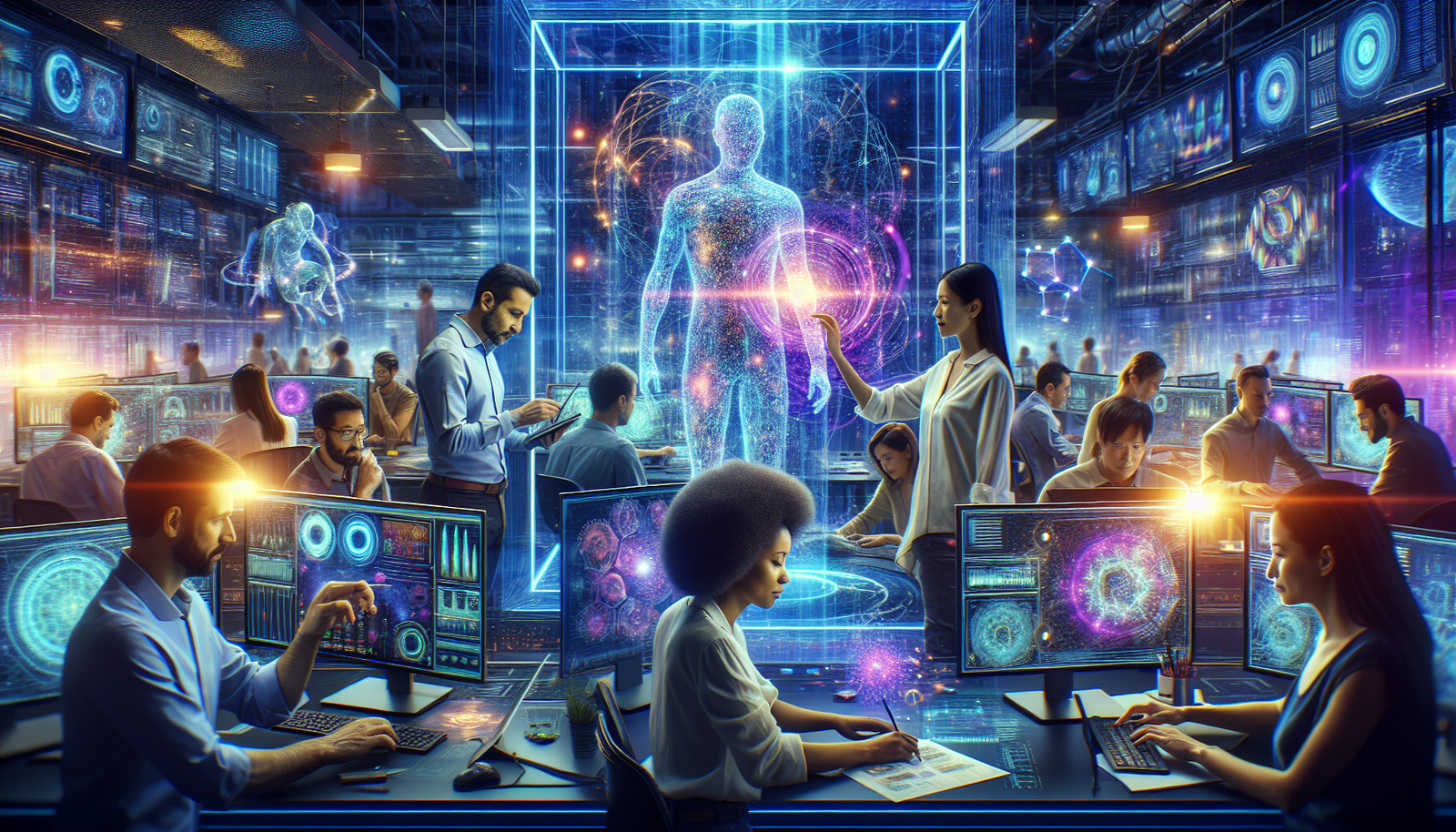The technological revolution underway is radically transforming simulations through smart sampling techniques. Artificial intelligence is establishing itself as an essential lever in the face of the increasing complexity of physical systems. With advanced machine learning, these technologies allow for the refinement of models, providing more accurate and relevant representations. AI profoundly changes our approach to simulations, paving the way for innovative and impactful solutions across various fields. The impact of these developments on research and industry warrants particular attention.
Revolution of physical simulations by AI
Numerical simulations have recently undergone a radical transformation thanks to the rise of smart sampling techniques. The integration of artificial intelligence (AI) enables a better understanding of the complexity of physical systems to be modeled. In the face of this increasing complexity, traditional methods prove insufficient. AI simplifies the simulation process, making results more accessible and comprehensible.
Modern sampling systems
Classic sampling approaches face limitations in their effectiveness. The emergence of AI has led to adaptive sampling methods, which adjust the simulation paths in real-time based on the data collected. This type of sampling helps to reduce the amount of necessary data while optimizing the accuracy of the results.
Applications in various sectors
The scope of AI-enhanced simulations extends to several sectors, such as healthcare, automotive, and aerospace. In the medical field, AI predicts patient behaviors and treatment outcomes by simulating thousands of interactions. In the automotive industry, it optimizes vehicle design through extensive simulations, thereby reducing development timelines.
Integrated machine learning techniques
Machine learning models deploy algorithms capable of learning from data. This facilitates the modeling of complex dynamic systems. These algorithms predict behaviors based on accumulated data histories. By integrating these techniques, simulations benefit from improved logical reasoning and deliver high-quality results.
Impact on scientific research
Scientists are exploring new frontiers through AI-supported simulations. AI systems, designed to detect anomalies, enable the validation of hypotheses and the identification of previously untapped patterns. For instance, in the space field, AI assists in detecting life on other planets by simulating extreme environments.
Evolution of technological tools
Technological advancements have facilitated the emergence of smart sensors capable of collecting precise data. This real-time data acquisition significantly enriches simulation models. To illustrate this trend, AI-enabled drone simulators, such as those developed by Swift, open new perspectives in the competition field.
Conclusion of challenges to overcome
The rise of AI-enhanced simulations does not come without challenges. The acquisition of reliable data representing the diversity of systems is essential. Limitations also remain regarding the understanding of complex algorithms, which present major obstacles for researchers. Efforts to overcome these challenges are ongoing, with the hope of an increasingly seamless integration of AI in the field of simulations.
Advancements enable individuals to glimpse their future potential through AI simulations. These tools open fascinating perspectives on forecasting outcomes across various fields. The typical AI system also offers advanced modeling capabilities to determine the best solutions to complex problems, as illustrated in this article.
Frequently asked questions
What is smart sampling in the context of artificial intelligence?
Smart sampling refers to the use of AI algorithms to efficiently select data samples, thereby optimizing the simulation process by reducing computational costs while improving result accuracy.
How does AI improve the accuracy of physical simulations?
AI analyzes vast datasets and identifies relevant patterns, allowing simulation models to better represent the reality of physical systems, which enhances the reliability of predictions.
How does AI integration in simulations reduce computation time?
Through advanced sampling techniques, AI focuses on the most significant data, eliminating the need to process the entire dataset and thus decreasing the computation time required to achieve results.
Which sectors benefit most from AI-optimized simulations?
Sectors such as healthcare, aerospace, automotive, and energy particularly benefit from simulation optimization, as they involve complex systems where accuracy is essential.
How do AI-proposed sampling techniques compare to traditional methods?
Traditional methods, often based on fixed rules, may be less suitable for complex systems. In contrast, smart sampling techniques leverage learning models to dynamically adapt to data variations, thereby offering greater flexibility and accuracy.
Can the use of AI in simulations introduce bias?
Yes, if the training data contains biases or gaps, these can affect the results of the simulations. It is essential to carefully select data and apply appropriate validation techniques.
What are the implications of AI on the predictive capabilities of simulations?
AI significantly enhances the predictive power of simulations by incorporating learning algorithms that capture complex relationships and trends that traditional methods may overlook.
How does the collaboration between AI experts and simulation researchers influence the outcomes achieved?
This collaboration combines technical AI expertise with a deep understanding of physical models, thereby fostering a more holistic and innovative approach that strengthens simulation results.






